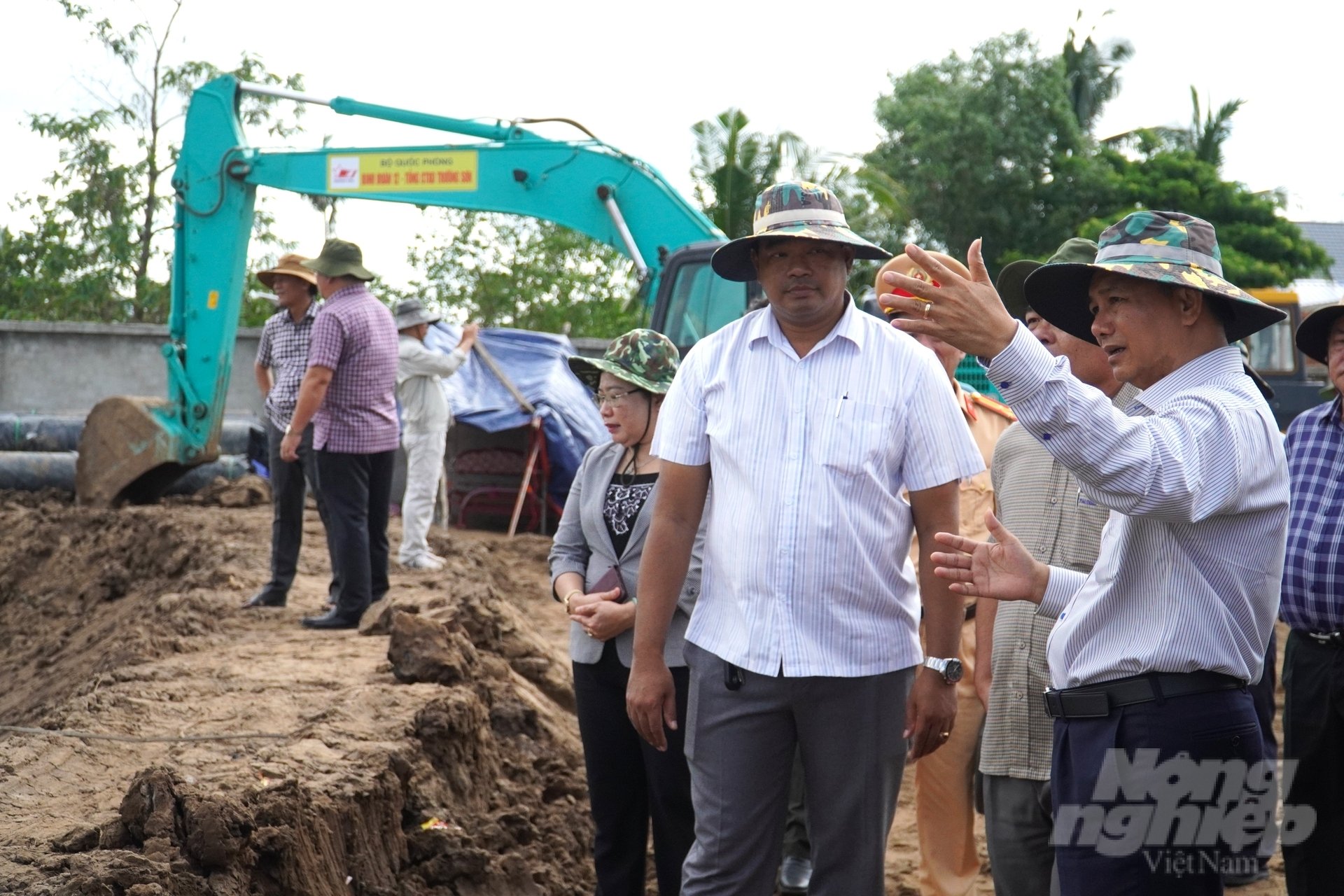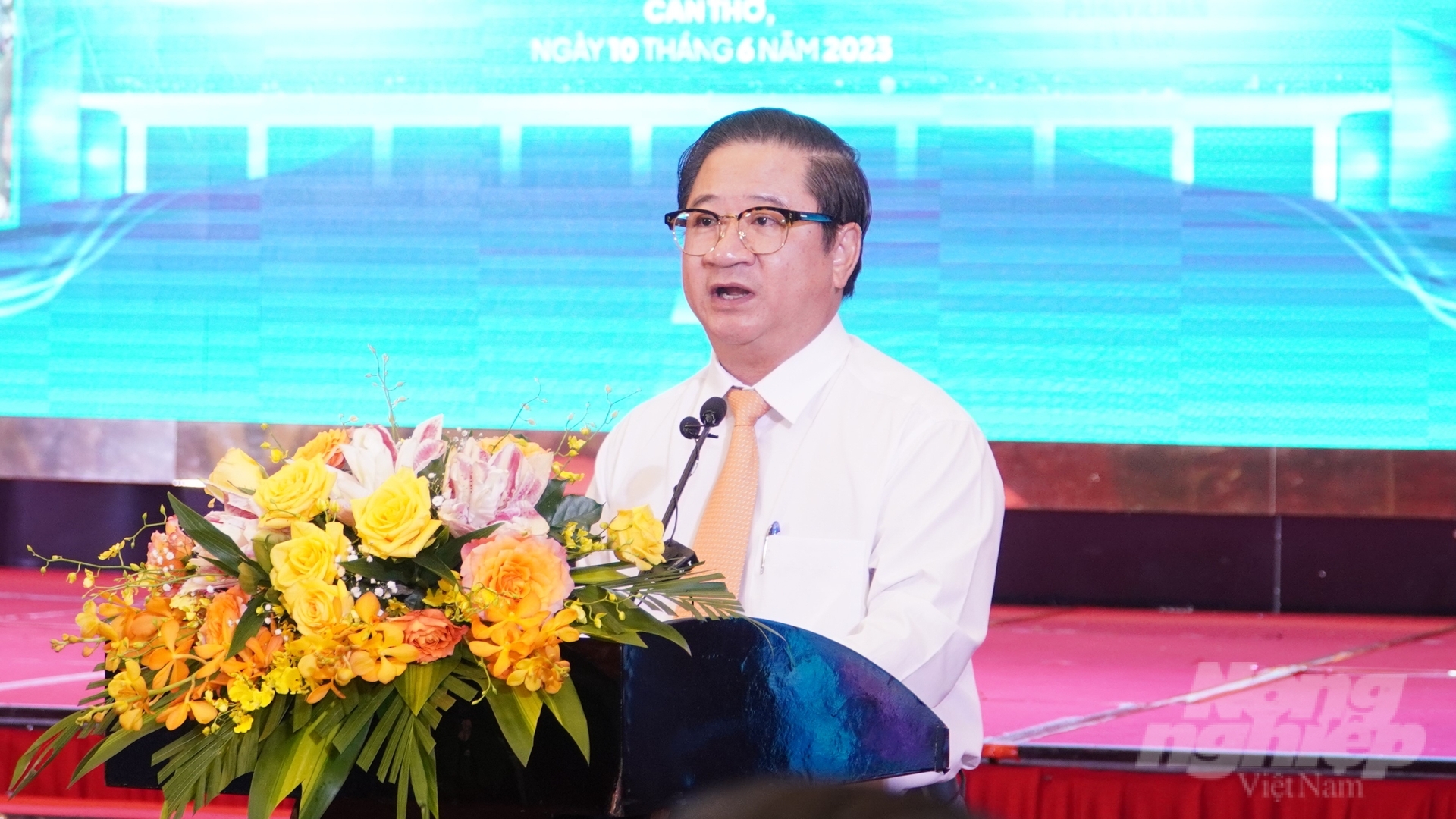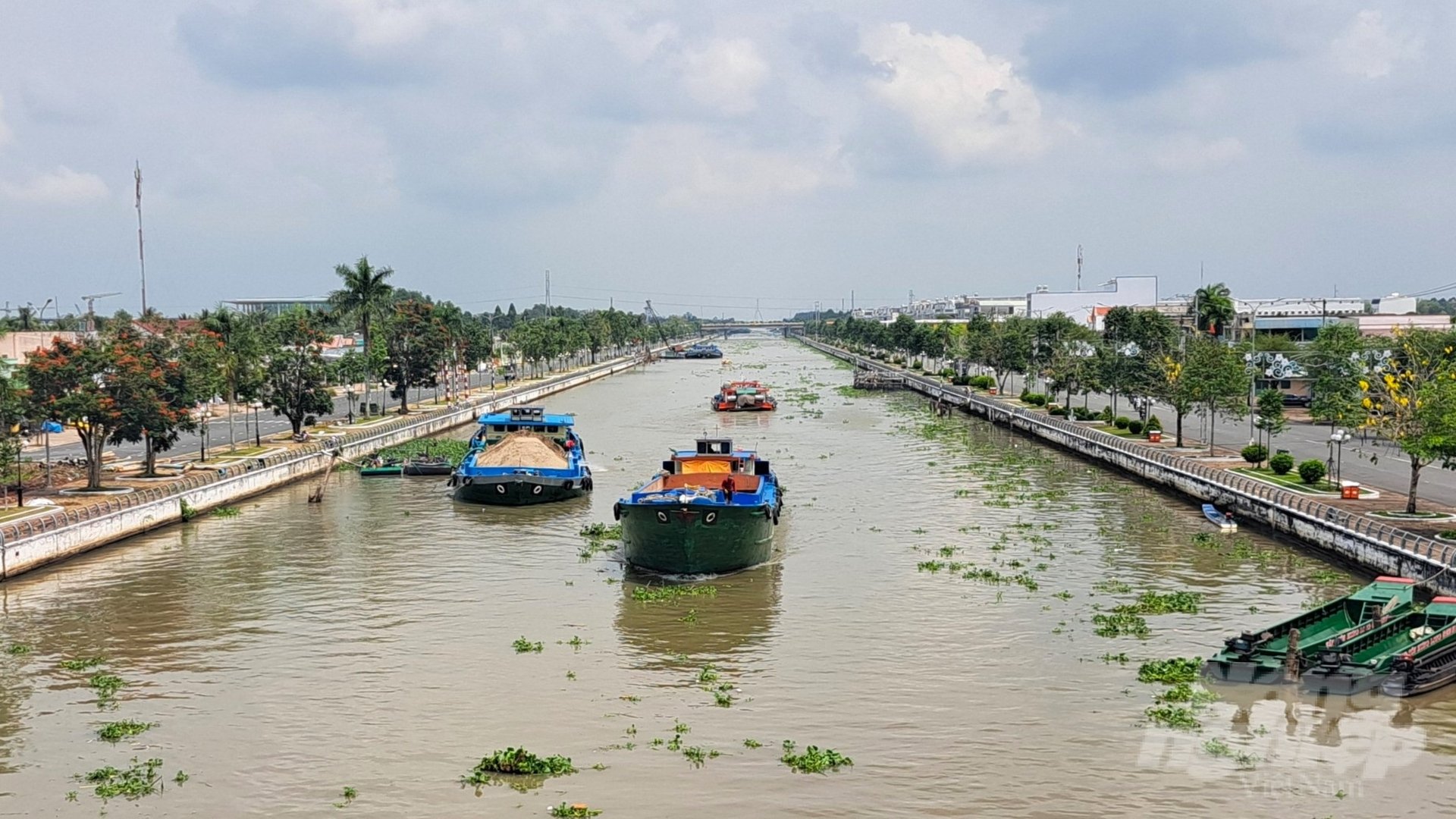November 27, 2025 | 22:23 GMT +7
November 27, 2025 | 22:23 GMT +7
Hotline: 0913.378.918
November 27, 2025 | 22:23 GMT +7
Hotline: 0913.378.918
Multiple large-scale transport projects have been deployed in the Mekong Delta in order to address the bottlenecks in infrastructure. Most notably, the Prime Minister issued an order to begin the construction of a North - South highway in Eastern Vietnam in early 2023, which includes the Can Tho - Ca Mau highway with a length of 109 kilometers.
The Chau Doc - Can Tho - Soc Trang highway project spans 188 kilometers across the four provinces of An Giang, Can Tho, Hau Giang, and Soc Trang. This highway project will start construction in mid-June. Additionally, the 100-kilometer Ha Tien - Rach Gia highway project was proposed by Kien Giang province to the Government for investment earlier than expected.

Mr. Tran Van Lau, Chairman of Soc Trang Provincial People's Committee surveying the venue for the groundbreaking ceremony of Chau Doc - Can Tho - Soc Trang highway project. Photo: Kim Anh.
The Forum on "Investment in infrastructure construction and economic development in the Mekong Delta region" was organized in Can Tho City on June 10. Mr. Tran Viet Truong, Chairman of Can Tho City People's Committee proposed the Ministry of Construction to initiate highway projects.
According to Mr. Truong, the Mekong Delta only has one major transportation route, which is the national highway. On the other hand, the number of vehicles in its provinces and cities is rapidly increasing. As a result, the construction of highways is necessary and urgent.
In addition, Mr. Tran Viet Truong requested the Ministry of Construction to support and guide the city in establishing a local center for association, production, processing and consumption of Mekong Delta's agricultural products according to Resolution No. 45 by the National Assembly. Accordingly, the city will implement the subsequent procedures, and invite investors to participate in the project implementation.

Mr. Tran Viet Truong, Chairman of Can Tho City People's Committee proposed the Ministry of Construction to initiate highway projects. Photo: Kim Anh.
Can Tho City aims to upgrade and expand the Can Tho International Airport to meet local and regional standards, in combination with contructing additional Cargo Logistics Ports. According to Mr. Truong, Can Tho city plans to develop into an airport city with a total area of approximately 10,000 hectares.
Mr. Phan Hoang Phuong, a representative from the Transport Development and Strategy Institute under the Ministry of Transport, believes that investment in highways will impair the connection of roads.
Consequently, it is necessary to build traffic systems connecting the roads and highways in order to ensure the link between the economic centers, which increases pressure on the region.
According Mr. Phuong's calculations, highway investment is twice as high as road investment. Due to a shortage of resources in the Mekong Delta, investment in both highways and roads is identified as the driving force for local socio-economic development.
The Department of Construction Management under Ministry of Construction estimated that all past, current and future highways in the Mekong Delta are nearly 600 kilometers in length.
The implementation of large traffic projects in the region has substantially increased the demand for sand leveling materials. The Mekong Delta is expected to need 54 million cubic meters of sand for construction between 2023 and 2024. However, the current national reserve only contains approximately 37 million cubic meters of sand, meeting 70% of the regional demand.
According to Mr. Tran Dinh Thien, a member of the Prime Minister's Economic Advisory Group, and former General Director of the Vietnam Institute of Economics, the Mekong Delta is heavily affected by climate change. As a result, the amount of sediment pouring into the delta has significantly dropped. Conversely, risks of salinization and subsidence in coastal provinces increased due to the overexploitation of sand. Local rivers are the main victims of the high demand for leveling materials.

According to Mr. Tran Dinh Thien, a member of the Prime Minister's Economic Advisory Group, and former General Director of the Vietnam Institute of Economics, rivers in the Mekong Delta greatly affected by the high demand for leveling materials. Photo: Kim Anh.
“In order to construct high-rise buildings and highways, we need to exploit sand in the rivers. This trade-off is unavoidable; the problem is to balance this exchange. We must develop special solutions to limit landslides, conduct hydrological studies on the rivers and the amount of annual sand accretion. Consequently, we can determine the optimal sites and volume for sand mining to prevent overexploitation", Mr. Thien explained.
Furthermore, it is necessary to build freshwater reservoirs and develop waterway transport for the sustainable development of the Mekong Delta. Agricultural production chains will be developed in combination with high technology, which adds value to the products as well as retains workers. On the other hand, the tourism system will be restructured based on local ecology, in association with the agricultural product chain.
The Department of Construction Management proposed to simplify the licensing procedures for mines specializing in leveling materials, and increase the capacity of sand mines. In additon, the Department suggested putting new mines into operation exclusively for highway projects. The Department will closely monitor the risk of landslides in accordance with Vietnam's regulationsw.
Namely, the Department proposes to research the use of alternative materials such as crushed sand from rocks, ash slag, etc. to supply highway projects and civil works.
Most notably, the use of sea sand has been piloted at the return route section DT.978 under the Hau Giang - Ca Mau component project. In addition, experimental results of the sea sand samples taken in Tra Vinh and Soc Trang showed that their physico-mechanical parameters met the requirements of sand for road embankment.
Another alternative include a mixture between saline sand and available local construction materials such as lime, cement, ash from rice husks, ash from Duyen Hai thermal power plant, etc. This experimental mixture can be used in road leveling for rural traffic. Additionally, the Delta needs to find other sources of raw materials to reduce long-term dependency on river sand.

Sand extracted from the riverbed has unstable quality and contains a high amount of impurities. Photo: Kim Anh.
Mr. Vo Tan Dung, a representative from Phan Thanh Clean Sand Technology Joint Stock Company in Can Tho City, commented that there is a scarcity of river sand resources in the Mekong Delta due to overexploitation. Sand extracted from the riverbed has unstable quality and contains a high amount of impurities. Excessive exploitation of river sand can cause landslides so it is vital to license limited sand dunes with suitable output.
Mr. Phan Hoang Phuong added that the lack of construction materials is a nationwide problem that affects all highways under construction.The research on the use of sea sand has been carried out at select highways. These research activities are currently in the process of testing the physical and chemical criteria as well as environmental impact.
The Transport Development and Strategy Institute is currently formulating unit price norms for sea sand. In the event that this material is exploited on a large-scale, there will be a unit price norm system for highway projects in the Mekong Delta in the near future.
Translated by Nguyen Hai Long

(VAN) According to Mr. Vo Minh Thanh, Director of the Tay Ninh Department of Agriculture and Environment, Resolution 57 has created a new development pathway for the locality, shifting from traditional toward modern agriculture.
/2025/11/26/4909-2-154329_878.jpg)
(VAN) Pearl grouper farming in HDPE cages not only delivers economic efficiency but also contributes to protecting the environment, creating jobs, and promoting marine-based experiential tourism.

(VAN) The model of making a living under the forest canopy through the agroforestry system in Van Son commune, Bac Ninh province, is expected to generate an annual income of approximately VND 30 million/ha.

(VAN) Many enterprises in Can Tho are harnessing natural energy and reducing greenhouse gas emissions in their production processes, thereby contributing to the promotion of a sustainable green transition.
/2025/11/24/3536-2-112800_176.jpg)
(VAN) Dong Nai now has tens of thousands of hectares of forests certified for sustainable management, and this area will continue to be expanded in the coming period.

(VAN) Vinh Ha hamlet (Dai Xuyen commune, Hanoi) is shifting away from small-scale farming as households adopt bioscurity into their breeder chicken models.

(VAN) Heavy rains make aquatic species more vulnerable to disease. Proactive water management and high-tech systems help farmers prevent outbreaks and protect yields.